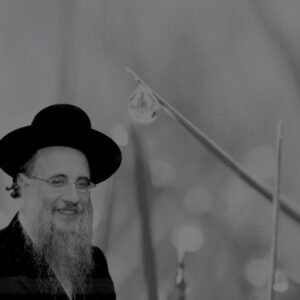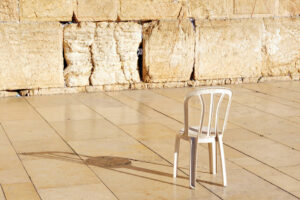What’s In A Name?
When Rebbe Nachman’s fourth daughter was born, he didn’t follow the common custom and name her at the next Torah-reading opportunity. Instead, days and days went by, and he had yet to provide his newest child with a name.
The Chassidim were confused by Rebbe Nachman’s strange practice, and people around Breslov began to whisper that something seemed to be wrong—the Rebbe was withholding his own daughter’s name! Reb Chaikel, one of Rebbe Nachman’s closest students, couldn’t hold back any longer. He went to visit his mentor at home to speak openly about people’s concerns.
“Rebbe, if you don’t do something, people will begin to say that the Breslovers no longer name their children!” Reb Chaikel added that Rebbe Nachman already had a number of opponents who were looking for excuses to vilify his followers. Would the Rebbe himself provide his enemies with ammunition?
In later years Reb Noson would say that Rebbe Nachman never made a fuss about something unless it was extremely important to him. Generally, if someone wanted him to do something and it didn’t violate a principle of his, he would accommodate himself to their will.
Rebbe Nachman shrugged, “Nu, if you think so … Let her name among the Jewish people be Chayah!” Reb Chaikel ran out to the synagogue to spread the news.
But later that day, unexpected news arrived from Mezhibuzh. Rebbe Nachman’s mother, Feiga, had passed away. Now it all was clear! The Rebbe had only been waiting for the news to reach Breslov before he named his daughter after his beloved mother. Even if he knew by ruach hakodesh (Divine inspiration) that his mother was gone, he couldn’t possibly give the name until the news reached Breslov by natural means.
Reb Chaikel was beside himself. What had he done?
After a time, Rebbe Nachman had another daughter, and this time he gave the name Feiga right away. But the girl died in infancy. The Chassidim would say, “Perhaps had it been reversed, and had the first girl been named Feiga and the second one Chayah [literally, ‘life’], the second daughter might have lived, too.”
Afterward Reb Chaikel lamented, “When, oh when, will I stop mixing into the Rebbe’s business?!”
Based on Or HaOrot I, pp. 220-221
- 0 comment


















